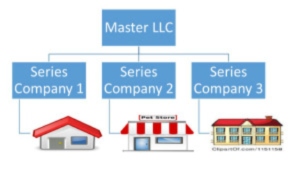How Should I/We Hold Title to My/Our Property?
When you get to the closing on your new home, the escrow company will often ask, “How do you want to hold title?”
The answer to this question may depend on a number of factors, such as whether you are married, whether you are purchasing the property with someone else or whether you have a trust for your estate. There may be other factors such as whether this is a property intended for investment or whether you are purchasing in the name of a corporation or LLC.
But for most individuals, the most common options are fairly straight forward. It should be noted that the discussion below is not exhaustive and that there may be other forms of vesting that could be of benefit in your specific circumstances. Similarly, not all states are community property states and for those that are, the existence and terms of pre or post-nuptial agreements are critical to vesting decisions. Vesting is the way we describe how the title to the property is held – with different forms of vesting comes different rights and obligations of joints owners that are not discussed here. It is important that you consult with an attorney to determine the best form of vesting for your circumstances.
This post is broken up into 4 parts which are intended to cover the most common forms of vesting in the four most common circumstances: Part I) if you have a trust; Part II) if you are purchasing property in your name only; Part III) if you are unmarried and purchasing with another person; and Part IV) if you are married. As a bonus, since we are talking about title(s), if you can name the artists for each of these songs titles, please post your answers!
Part I: A Matter of Trust
Generally if you have a trust, and the property is intended as your primary residence, you will likely title it in the name of the trustee of your trust. This is true whether you are single or married and often if you are purchasing with someone else to whom you are not married. You should always consult with your estate planning attorney when transferring property into or out of your trust.
Part II: All the Single Ladies
If you are purchasing property as an unmarried person and in your name only, the vesting is pretty much just that, as an individual (you may see this written as a an unmarried woman/man or single woman/man which is a coded reference to whether you are divorced or never married – if you object to this, as I do, you can simply request that title be vested in your name as an individual).
If you are married, but you are purchasing the property as your separate property, the title will generally read just that: Jane Smith, a married woman as her sole and separate property. In community property states, in order for your spouse to disclaim any community property interest in the property s/he may be required to sign a Quit Claim or Interposal Deed.
Part III: Our House
If you are purchasing property with another person that is not your spouse, you really have two choices: “joint tenants” or “tenants in common”. With joint tenancy, each owner has an undivided equal interest in the property. More importantly, joint tenancy comes with an automatic right of survivorship. This means that when one joint tenant/owner dies, his/her interest automatically transfers to the remaining owner(s). If one of the joint tenants transfers her/his ownership interest during their lifetime, this can destroy the joint tenancy and convert the ownership to tenancy in common.
More than one owner can also own property as tenants in common. In this case, each owner will own a percentage of an undivided interest in the property i.e. the ownership interest does not have to be equal. With joint tenancy there is no right of survivorship and when one joint tenant dies the interest is freely transferable to the decedent’s heirs. In Nevada, if the type of vesting is not specified, our statutes provide that the default vesting is tenancy in common.
Part IV: Love and Marriage
Married couples can also hold property as joint tenants or tenants in common. However, both California and Nevada have the option for married couples to hold property as “community property” or “community property with right of survivorship”. The community property with right of survivorship vesting carries two very important benefits, namely the automatic right of survivorship when one spouse dies and a tax benefit known as a “step up in basis”.
What this means is, when one spouse dies, the surviving spouse gets the benefit of a readjustment of the tax basis in the property up to the current value. This is important if, say, a married couple purchased the house in 1970 for $100,000. At the time of the death of the first spouse in 2016, the house is valued at $700,000. The surviving spouse elects to sell and downsize, without the step up in basis the surviving spouse could be subject to capital gains tax on the difference between the original basis of $100,000 and the new value of $700,000. If the property was vested as community property with right of survivorship, the surviving spouse would get the tax benefit of the step up in basis.
If a married couple holds title simply as community property (without the right of survivorship), they can take advantage of the step up in basis, but the transfer of title to the surviving spouse will not be automatic and may require probate.
As noted above, there are many ways for individuals to hold title to real property. This post only discuses a few of the most common. Because there are tax and legal consequences to how title is held, it is important that you consult with an attorney to help you sort out the best approach for your needs. And do keep in mind that you can always change the vesting after close of escrow!




